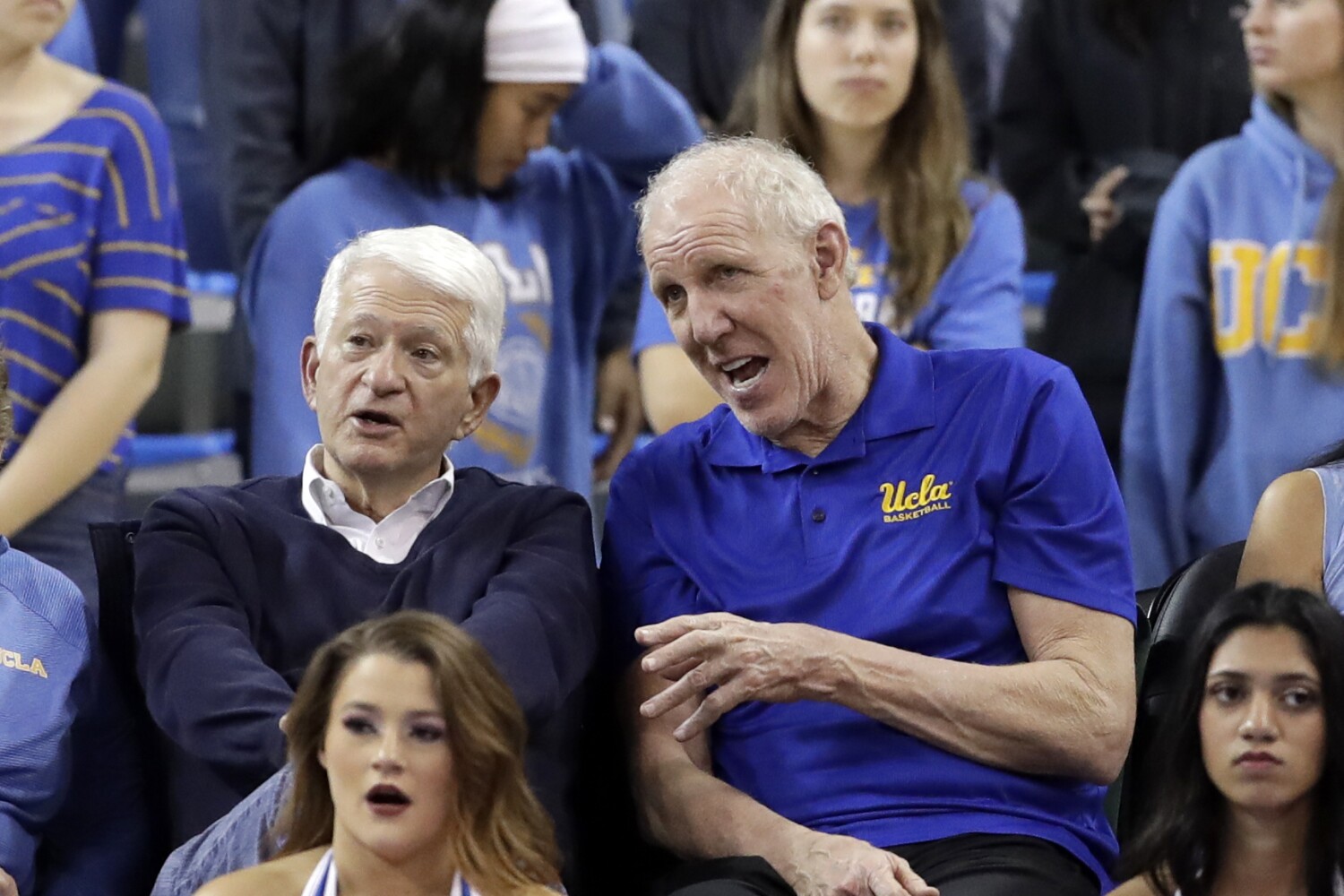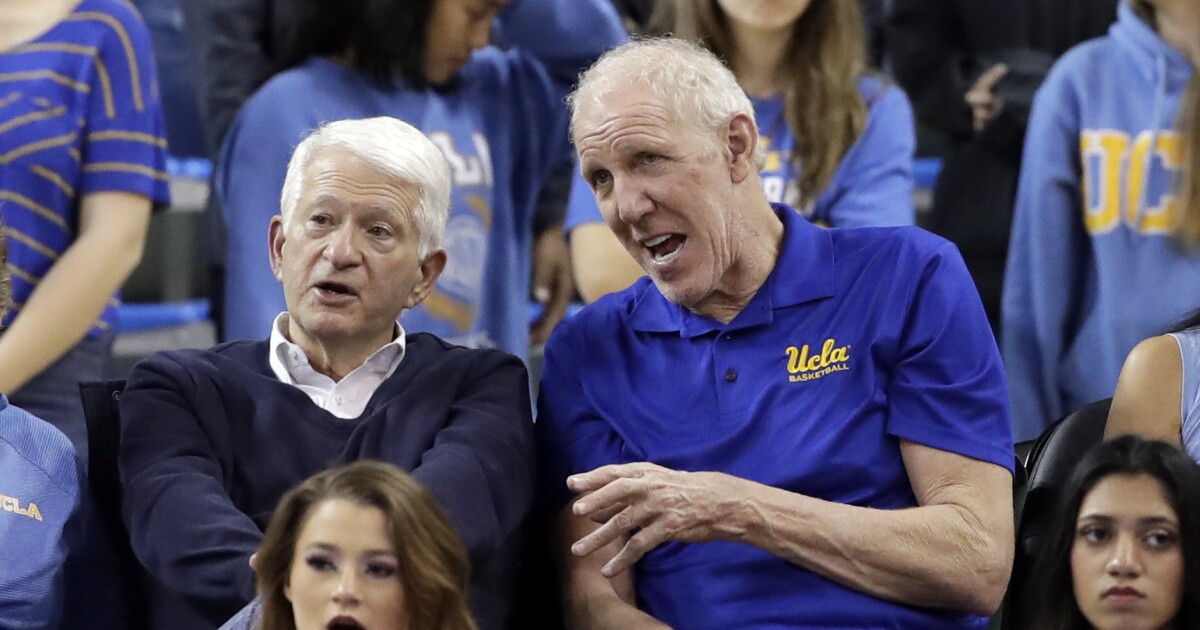Blocking UCLA’s move to Big Ten could have massive fallout for UC regents

Any attempt by the University of California regents to block UCLA’s move to the Big Ten could endanger the way the governing body does business, according to a longtime observer of the regents experienced with their inner workings.
The observer told The Times that the regents trying to thwart a business transaction properly made by a university chancellor under his delegation of authority could have a chilling effect on future transactions of any type with a third party for all 10 UC campuses.
“Other members of the board of regents need to stop and think about that for a moment,” said the observer, speaking on condition of anonymity because he did not want to publicly reveal past ties to the regents.
Two regents told The Times on Wednesday that they believed their governing body retained the authority to prevent UCLA from leaving the Pac-12 in 2024, though they stopped short of saying that authority would be exercised.
“All options are on the table,” regent John Perez said.
Regents have expressed concerns about how UCLA’s move — alongside cross-town rival USC — could financially wallop UC Berkeley while also increasing the strain on UCLA athletes because of the travel burden associated with competing in a conference spanning one coast to the other.
When UCLA announced its intentions to bolt for the Big Ten at the end of June, chancellor Gene Block and athletic director Martin Jarmond touted the move’s ability to fortify their athletic department amid a rapidly changing college sports landscape. The move would come with huge financial benefits, expand the school’s recruiting base and provide a level of prestige that continuing membership in the Pac-12 would not match.
The debate over UCLA’s ability to unilaterally switch conferences centers on a 1991 UC system policy that delegated authority to campus chancellors to execute their own contracts, including intercollegiate athletic agreements. Charlie Robinson, general counsel for the UC system, said during the regents meeting Wednesday that the board chairman could supersede that authority.
“One mechanism would be for the [regent] board chair to say, ‘I’m directing you, in this instance, to stand down,’ ” Robinson said, “and the board will be exercising authority in this area.”
To protect itself from similar quandaries in the future, UC system leadership has proposed new rules that could limit campuses from making major decisions involving athletics contracts on their own. The regents are expected to vote on the proposal at their September meeting in San Diego.
The longtime observer said he could recall only two instances in which the UC regents overturned or modified actions taken by a university chancellor or president under existing delegations of authority.
In 1970, the board of regents reversed UCLA chancellor Charles Young’s decision to rehire Angela Davis as an acting assistant professor of philosophy after she had identified herself as a member of the Communist Party.
In 1996, the board of regents informally asked UC President Dick Atkinson to modify his decision to delay, by one year, the implementation of affirmative action-related resolutions.
The observer questioned whether the regents had the legal authority to retroactively rescind Block’s decision that had been communicated to Michael V. Drake, president of the UC system. Moreover, the observer wondered if the regents wanted to invite the sort of chaos that intervening in this matter would create.
“If the regents set the precedent that any action taken under delegations of authority can be undone by the board,” the observers said, “any loan agreement for a new campus building, the acceptance of a gift, the naming of a building — all of those matters would then be subject to question.”
For all the latest Sports News Click Here
For the latest news and updates, follow us on Google News.

